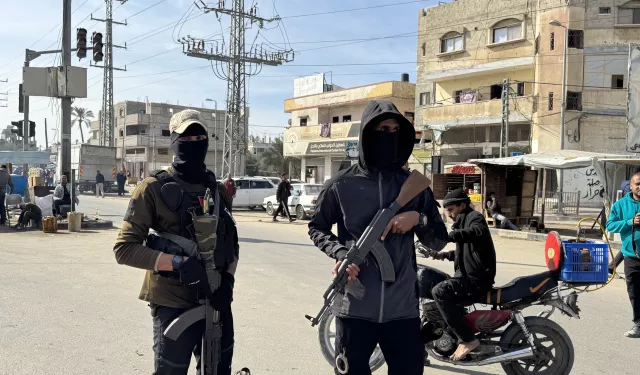Hamas has rejected US accusations of plotting an imminent attack on civilians in Gaza, calling the claims “false allegations” and “a complete alignment with Israel’s misleading propaganda,” while accusing Washington of offering “political cover for the occupation’s ongoing crimes and organized aggression against our people.”
In a Telegram statement issued Sunday, Hamas “categorically denied” the US accusation, stating that facts on the ground told a different story. Hamas claimed that Israeli authorities had “created, armed, and funded criminal gangs” involved in killings, kidnappings, aid truck thefts, and assaults on Palestinian civilians.
The group cited public confessions aired by these groups through Israeli media and videos as proof of the occupation’s role in fueling chaos and insecurity in Gaza.
Hamas further asserted that Gaza’s police, “with broad public support,” were fulfilling their national duty by pursuing these gangs through “clear legal mechanisms” to protect citizens and safeguard public and private property.
It called on the US administration to “cease echoing the occupation’s disinformation” and focus instead on holding Israel accountable for repeated violations of the ceasefire, including its support and sheltering of these criminal factions.
The US State Department had earlier claimed it had “credible reports” that Hamas was planning an attack on civilians in Gaza—a move it warned would “direct and grave violation of the ceasefire agreement and undermine the significant progress achieved through mediation efforts.” It added that in response to any such action by Hamas, “measures will be taken to protect the people of Gaza and preserve the integrity of the ceasefire.”
Israel’s Prime Minister’s Office, meanwhile, confirmed on Sunday that the bodies of two captives had been transferred by Hamas to the International Committee of the Red Cross late Saturday.
The handover was carried out as part of the ceasefire agreement reached earlier this month. However, Israel announced that the Rafah crossing would remain closed “until further notice,” conditioning any reopening on Hamas’s “fulfillment of its obligations to return the remaining captives and bodies.”
In response, Hamas accused Israel of using the closure as leverage and warned that restricting the movement of wounded civilians and humanitarian evacuations “would impede the implementation of the ceasefire terms.”
The group stated that continued closure would delay retrieval and handover operations for the bodies of captives due to blocked entry of essential equipment and the prevention of rescue efforts.
The truce, brokered in Sharm El-Sheikh earlier this month in Sharm El-Sheikh and later endorsed by Egypt, Turkey, and Qatar, outlines a two-stage process: first, the exchange of detainees and the delivery of humanitarian aid, followed by talks on Gaza’s administration and the disarmament of resistance factions.
A Hamas delegation arrived in Cairo on Thursday to discuss the second phase amid reports of Egyptian pressure on the group to halt what it termed “field executions.” The issue gained urgency following reports that Hamas executed former prisoner Hisham Al-Saftawi in Nuseirat refugee camp—a move condemned by Fatah as a “heinous crime.”
Fatah said in a statement that Hamas was “entrenching its security control over Gaza at the expense of national unity,” citing a “pattern of violations, arbitrary arrests, and field killings.”
Tensions deepened last week when a video circulated showing masked gunmen—some wearing Hamas insignia—executing eight blindfolded men in a Gaza City square before hundreds of onlookers.
Hamas’s Rada’ (Deterrence) Security Force later claimed responsibility, describing the killings as “a precise operation targeting wanted criminals and outlaws.”
In another incident, journalist and activist Saleh Aljafarawi was killed while reporting in Gaza’s Tel Al-Hawa neighborhood amid clashes between Qassam fighters and members of the Dughmush clan.
Hamas’s Interior Ministry later announced “an amnesty initiative for gang members not involved in blood crimes to regularize their status.”
